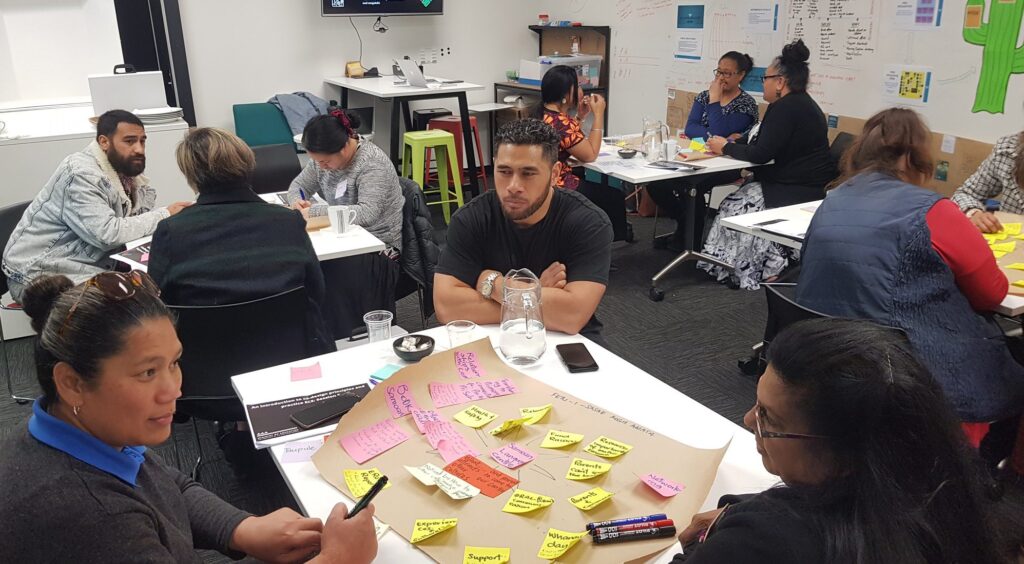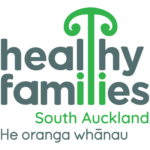
The end of July saw the last of five capability-building workshops Healthy Families South Auckland (HFSA) have been holding with Counties Manukau Kindergarten Association (CMK) and Pasifika early childhood education (ECE) centres in South Auckland.
The ECE teachers and staff learned professional development tools in design thinking to create ideas that will help whānau, rangatahi and ECE teachers learn better together. This aligns to Healthy Families NZ partners with local leaders to create local solutions, driving sustainable change that is owned by community – not delivered to community.
Centre Manager for the Pacific Early Learning Community Centre in Manurewa, Inano Lotulelei, says having these tools on hand will help with connecting to their childrens’ parents.
“We’ve learned how to use design to figure out how to engage our parents, now it’s about going back to work with our parents. We’ve got the confidence to do this.”
However Inano was a bit reserved at first and admits that at the start she found the workshops challenging.
“I was hesitant and a little bit confused,” says Inano who admits that she didn’t know how the use of design would relate to them as an ECE.
Inano says it made her wonder how they would do it, but the more that they got into it the more it made sense. It was then that she had her ‘A-ha Moment’.
“Following the interaction at the other centre, and the listening we did it really began to sink in.”
HFSA led participants through Discover and Define phases of the Design Thinking Framework, using interactive sessions during each workshop to learn by doing. Design-thinking seeks to understand the people who need its help, challenge assumptions, and redefine problems to identify strategies and solutions to their problems.
By the end of the final session there was an understanding of the magnitude of their learnings and what they could now do.
“It’s impacted on our own work,” says Mahali Filipo, a teacher from the Pacific Early Learning Community Centre in Manurewa, “we were always looking at our children and seeing what we can offer them but not really for our parents, but without the parents we wouldn’t have our children.”
Being able to co-design with the families in their ECE centres meant the centre weren’t being constrained by their own notions of what parents and their children might need, but rather were being given the ability to approach parents to find out what new ideas could be prototyped, run and tested by and for whānau within the community.
The Cause Collective’s Design Practice Lead, Jodi Meadows, taught the teachers how to use design as a tool to connect with their parents.
“Originally it was our Lead Systems Innovator, Fila, who saw the opportunity to provide our participants with design tools to run their own design challenge rather than running a design challenge for them.
“So we decided not to do a design challenge with the teachers but instead took it as a capability-building opportunity,” Jodi explains.
“This way, after six months of working with our teachers they wouldn’t just have one solution ready to test. Rather they have the tools and know-how to work with their families to identify problems and seek solutions with them to create change in their centres.”
This required hard work from the teachers to learn design by doing.
“The only way you can learn to do design is by doing design,” says Jodi, “now that they can do that, HFSA’s involvement will now take on a more mentoring and supportive role.
“This is the way that Healthy Families intends to create impact by partnering with local leaders to create local solutions, driving sustainable change that is owned by the community – not delivered to them. ”
“For the continuation of this challenge we will be more focused on the ways that they bring the families of the ECEs together and create spaces for collaboration with them.”
For Suzanne Magatogia from Manukau Central Kindergarten in Wiri it’s about reaching into the community she’s been a part of her whole life.
“Not just thinking of our parents and their situations but actually thinking about all our families, I’ve lived in our community for well over 29 years so I do know what I see, and I do understand,” she explains before revealing the depth of her understanding and connection.
“I too come from a family who has had nothing so I have a full understanding of how hard it is for our families.”
She and all the participants now have the capability to not only think or understand their centre’s parents but the ability to ideate and come up with solutions together with them.



